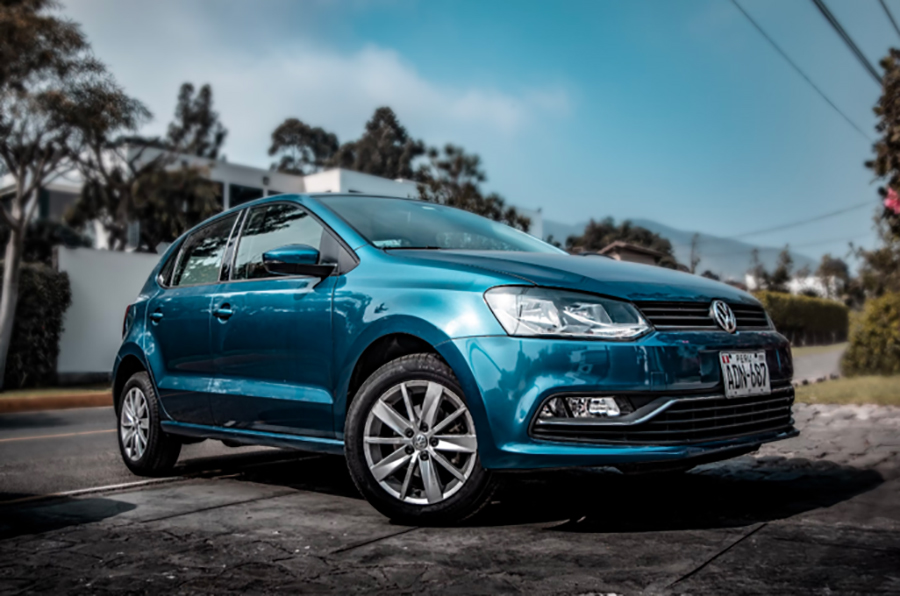7 Things to Consider When Choosing a New Vehicle to Buy
Making the right decision when it comes to purchasing a new vehicle can be a tricky process. You want something that fits both your lifestyle and budget, while also taking into account any potential future needs. To make the car buying experience as smooth sailing as possible, it's important to consider several factors like usage, features, safety ratings, and more!

In this blog post, we’ll explore seven of the key things to look out for when selecting a vehicle for purchase. No matter what kind of driver or buyer you are – whether adventurous off-roader or daily commuter – our guide will help ensure that you get the perfect car at an affordable price. Read on to find out more!
1. What size and type of vehicle you’re looking for
When it comes to choosing a vehicle, there are many factors that play a role in the decision-making process. One of the biggest decisions you'll make is what size and type of vehicle is right for you. Do you prefer a sleek and sporty sedan, or do you need something bigger like an SUV that can fit the whole family? Or maybe a hatchback suits your style with its added practicality and space for cargo. Whatever your preferences may be, choosing the right type and size of the vehicle is an important step in finding your perfect match on the road.
2. Think about getting a pre-owned vehicle
While purchasing a new vehicle is exciting, it's also worth considering buying a pre-owned one. Used vehicles can offer significant cost savings while still providing reliable transportation. They also come with a history report, giving you an insight into any past accidents or maintenance issues. Certified pre-owned vehicles go through a rigorous inspection process by the manufacturer, offering an added layer of assurance. It's essential, however, to take any used vehicle for a pre-purchase inspection by a trusted mechanic. This step can help you avoid potential problems down the line. Remember, a well-maintained pre-owned vehicle can provide the same comfort and performance as a new one at a fraction of the cost.
3. Research the cost of maintenance, fuel economy, and insurance coverage for various brands/models
When it comes to purchasing a car, there are a lot of factors to consider beyond just the sticker price. Taking some time to research the additional costs of maintenance, fuel economy, and insurance coverage for various brands and models can have a big impact on your budget over time. For example, some car brands may require more frequent maintenance or more expensive parts, while others may offer better fuel efficiency and therefore save you money at the gas pump. Similarly, insurance rates can vary widely depending on the make and model of your vehicle. By doing your homework on these additional costs, you can make a more informed decision about which car is the best fit for both your lifestyle and your wallet.
4. Consider the best safety features available
Thankfully, there are a variety of safety features available that can meet the unique needs of each driver. For those who frequently travel on highways, adaptive cruise control and lane departure warning systems can be incredibly helpful. Meanwhile, parents with young children may want to consider cars with extra airbags, such as side-curtain airbags that extend to the third row of seats. Blind-spot monitoring and rearview cameras are also great choices for drivers who want to increase their visibility on the road. Ultimately, there are many features to choose from, so it's important to do your research and determine which ones are best suited to your driving needs.
5. Learn about warranties and extended service contracts
Making a big purchase can be a daunting task, especially if you're worried about the possibility of something happening to it after you buy it. That's where warranties and extended service contracts come in. These agreements offer peace of mind and protection for your purchase, ensuring that if anything goes wrong, you won't be left with a hefty bill. While some warranties may be included in your purchase, it's always a good idea to look into extended service contracts that may offer additional coverage. Doing your research and understanding what kind of coverage you're getting can save you a lot of hassle and money in the long run. So, don't be afraid to ask questions and invest in the protection of your big-ticket items.

6. Check reviews from expert sources online
When it comes to buying a new car, there is no denying that reviews from experts and recommendations from family and friends can be extremely helpful in making a decision. It's important to do some research beforehand and consider all available information to ensure that you end up with the right make and model for you. Expert sources online can provide you with a wealth of knowledge about different cars and their features, while your family and friends can give you first-hand accounts of their personal experiences with particular makes and models. By taking the time to check reviews from both expert sources and those close to you, you'll be able to make a more informed decision and choose a car that you'll truly be happy with.
7. Ask yourself some key questions about what you need in a vehicle
Choosing a vehicle can be a daunting task with so many options available in the market. It's important to take some time and reflect on your needs before making a decision. Ask yourself some key questions such as how many people do you need to transport regularly? Are you planning on taking long road trips and need ample cargo space? Or maybe you want a vehicle that can handle off-road adventures? Knowing what you need in a vehicle will make the decision-making process smoother and ensure that you are happy with your purchase for years to come. So take some time, consider your needs, and find the perfect vehicle to fit your lifestyle.
Buying a car is a significant decision that requires careful consideration and research. It's not just about the model or the color, but also the type and size of the vehicle, its maintenance cost, fuel economy, safety features, and how it fits into your lifestyle. Considering pre-owned vehicles and understanding the warranties available can also help you get the most value out of your investment. Lastly, remember to take the time to read reviews from experts and those who have firsthand experience with the vehicle you're considering. By answering key questions about what you need and want in a vehicle, you can make a confident, informed decision that suits your needs and budget. Happy car hunting!